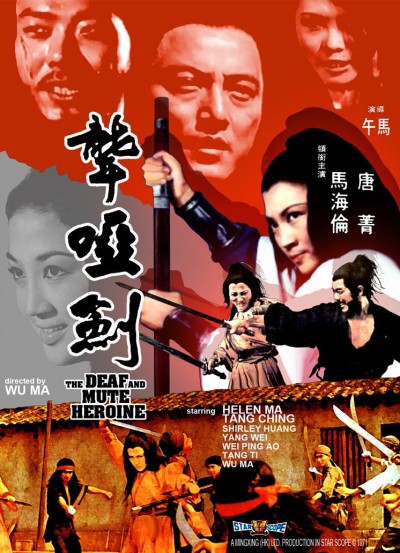★½
“Godfrey Ho nods approvingly.”
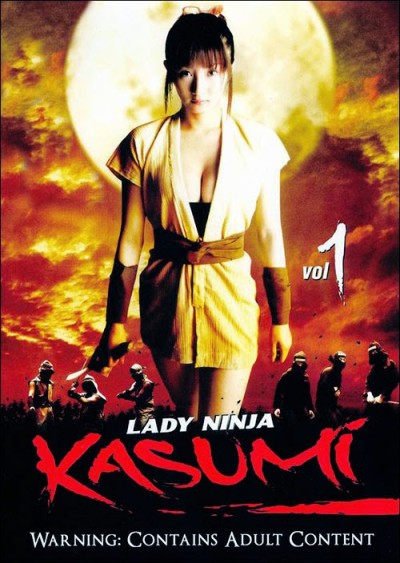 I’ve endured enough of these that I get the increasing feeling they are cranked out on a Japanese assembly-line somewhere, for they seem to have the same elements, right down to the title, which involves a random combination of words such as Assassin, Female, Geisha, Girl, Lady, Ninja and Woman. Get some porn actress, whose talents are neither in acting nor in martial arts, a few robes and some samurai swords, then have everyone run around some generic but potentially “historical” location, such as a forest. You’ll want a lot of sitting around chatting, since that’s particularly easy to film, and sprinkle lightly in mediocre sword-play. Intersperse the story with lengthy sex scenes every 15 minutes or so. Package in a non-descript sleeve that promises more than it can ever deliver. Release. Profit.
I’ve endured enough of these that I get the increasing feeling they are cranked out on a Japanese assembly-line somewhere, for they seem to have the same elements, right down to the title, which involves a random combination of words such as Assassin, Female, Geisha, Girl, Lady, Ninja and Woman. Get some porn actress, whose talents are neither in acting nor in martial arts, a few robes and some samurai swords, then have everyone run around some generic but potentially “historical” location, such as a forest. You’ll want a lot of sitting around chatting, since that’s particularly easy to film, and sprinkle lightly in mediocre sword-play. Intersperse the story with lengthy sex scenes every 15 minutes or so. Package in a non-descript sleeve that promises more than it can ever deliver. Release. Profit.
Because this kind of dubious excuse for a movie is incredibly cheap to make, and it seems there’s an endless appetite for them, both in the West and (presumably) in Japan – much like any old cack with a zombie in it will currently get a release here. I watch them so you don’t have to. Trust me, there are times when this site is a chore, not a pleasure. This theory isn’t inviolate: Geisha Assassin is actually pretty good. Lady Ninja Kasumi, on the other hand, possesses absolutely nothing to separate it from all the other sword-wielding soft-porn which has strayed across my disinterested eyeballs in the past.
The heroine is Kasumi (Young-mi), who became a ninja in order to protect her little brother, Kotaro. She’s sent on a mission to spy on a nearby clan, and defeats a member of their Hakuga squad, run by the Itagaki brothers. Injured in the process, she is nursed back to health by a friendly medicine-peddler. However, the other Itagaki brothers are keen to get their hands on the ninja responsible for their colleague’s death and… Well, let’s be honest, it was at roughly this point that my interest vanished over the event horizon, sucked in by this low-rent combination of clunky cinema, bad fight scenes and tedious humping. I think there was something about another, freelance female ninja, and an assassin who could disguise himself as a small child, which I guess deserves half a star for sheer novelty. There are times I feel guilty about not giving a film my full attention. This is not one of those occasions. This is the first in a series which runs ten volumes – needless to say, I won’t be bothering with the others.
Dir: Hiroyuki Kawasaki
Star: Young-mi, Saki Anz, Yui Mamiya, Hideki Satô





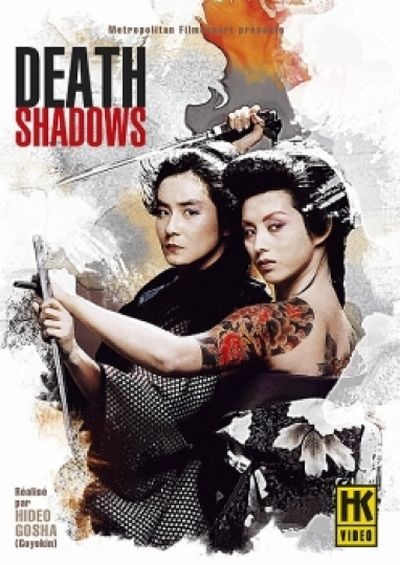


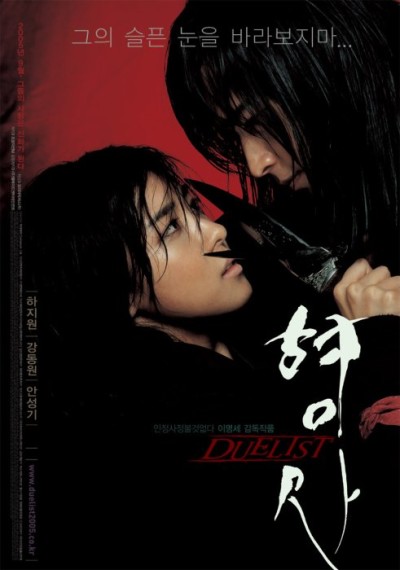
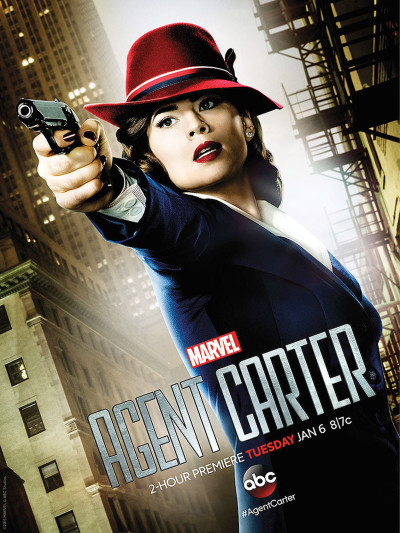
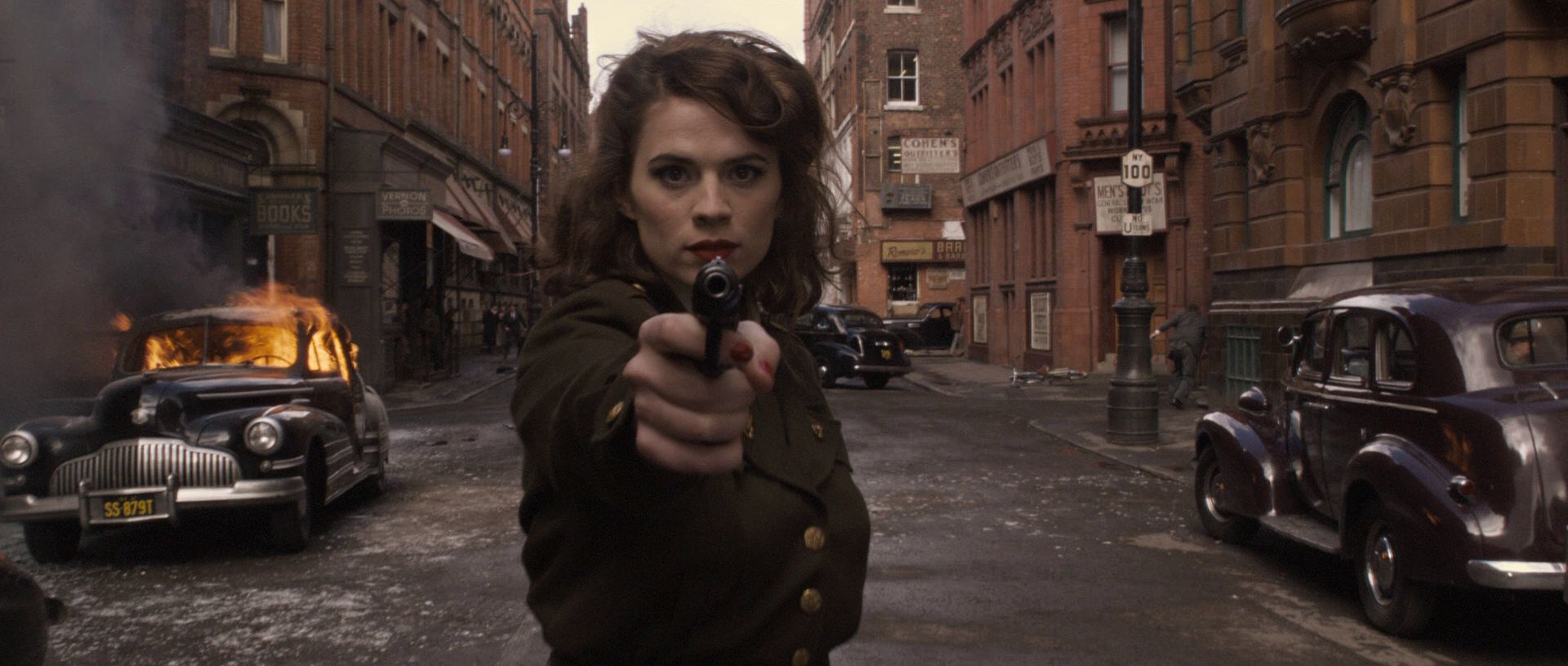











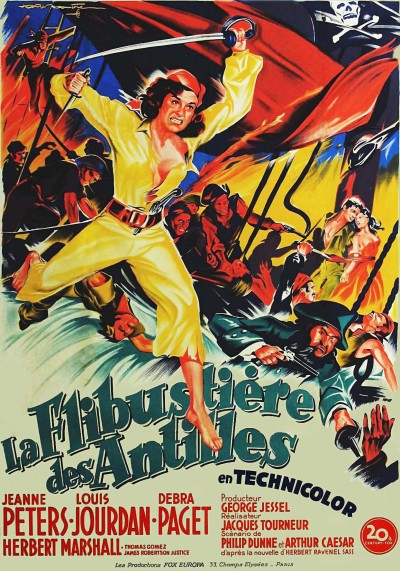















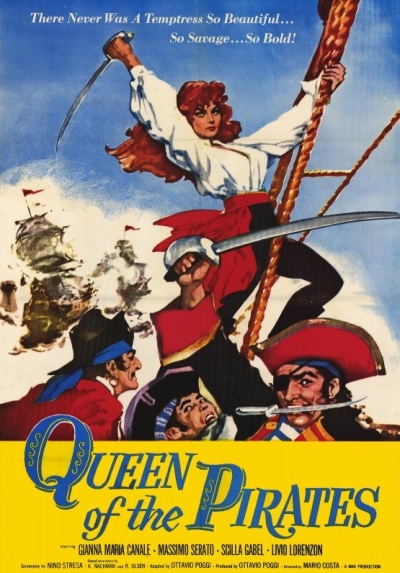 Sandra (Canale) and her father fall foul of the local tyrannical Duke (Muller) after they refuse to pay his excise duty. Arrested, the arrival of the poor but noble Count of Santa Croce, Cesare (Serato), saves them from death – or a fate worse than in Sandra’s case, as the Duke has a profitable sideline, shipping local girls off to the Middle East. After escaping, they join up with a local pirate band, who agree to help target the Duke after Sandra bests their leader in sword-play. To gain the hand of the duke’s daughter, Isabella (Gabel), Cesare agrees to hunt down the “Queen of the Pirates” who has brought trade to a standstill, not knowing that his target is the same woman he helped save, and since then has had a secret longing.
Sandra (Canale) and her father fall foul of the local tyrannical Duke (Muller) after they refuse to pay his excise duty. Arrested, the arrival of the poor but noble Count of Santa Croce, Cesare (Serato), saves them from death – or a fate worse than in Sandra’s case, as the Duke has a profitable sideline, shipping local girls off to the Middle East. After escaping, they join up with a local pirate band, who agree to help target the Duke after Sandra bests their leader in sword-play. To gain the hand of the duke’s daughter, Isabella (Gabel), Cesare agrees to hunt down the “Queen of the Pirates” who has brought trade to a standstill, not knowing that his target is the same woman he helped save, and since then has had a secret longing.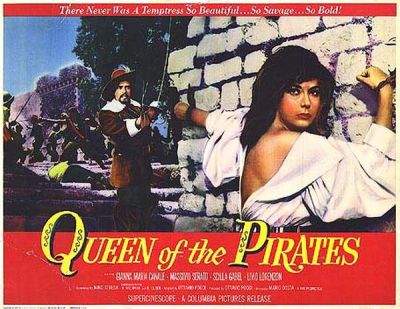
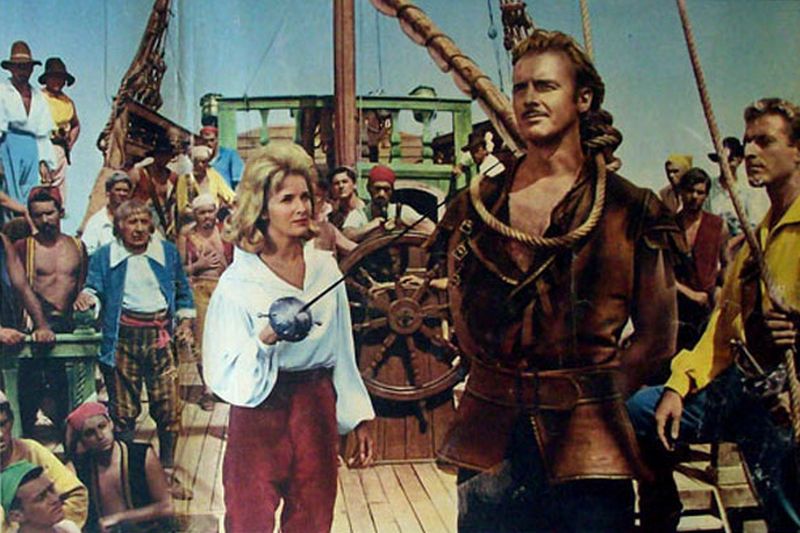
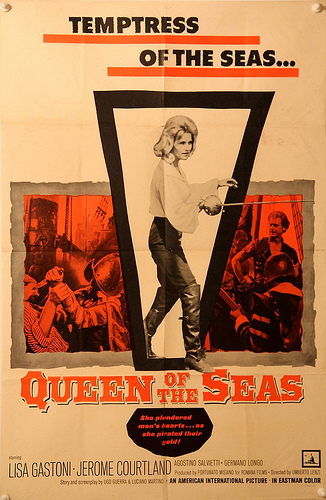 Despite its age – this was made in 1961 – it has stood the test of time fairly well, except for a romantic ending which is both predictable and unfortunate. This turns the heroine into exactly the subservient woman she spent the first 80 minutes
Despite its age – this was made in 1961 – it has stood the test of time fairly well, except for a romantic ending which is both predictable and unfortunate. This turns the heroine into exactly the subservient woman she spent the first 80 minutes 